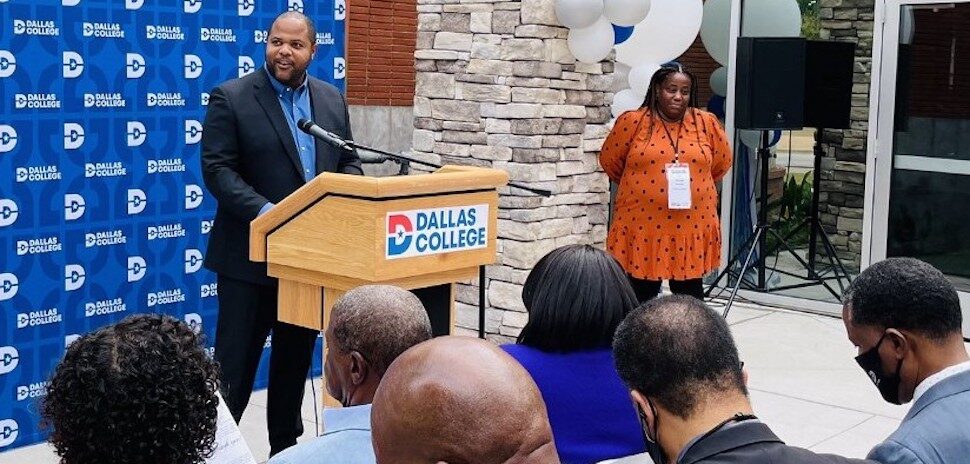A home-buying startup called Bungalo recently launched in Dallas and Tampa, Florida, with the aim of streamlining the homebuying process while providing an experience akin to buying a certified pre-owned vehicle — minus the haggling.
Austin-based Amherst Residential — which founded the single-family rental company Main Street Renewal — has vaulted into the home-flipping business by launching Bungalo, backing the effort with a more-than $1 billion investment. Bungalo emerged from stealth, and chose Dallas-Fort Worth and Tampa as its first markets because Amherst Residential had existing operations in both, according to the Austin Business Journal.
Amherst already invested $225 million into Bungalo’s launch this year, Bloomberg reported, and it plans to drop an additional $1 billion in funding to pay for Bungalo’s expansion efforts.
“Bungalo offers a 21st-century solution to an age-old process that has seen little innovation.”
Greg Stewart
With Bungalo, also based in Austin, Amherst is using the same technology platform that it uses to find single-family rental properties, but now it’s to buy, renovate, and sell single-family homes to owner-occupants.
It’s not about the highest bidder, though. Bungalo sells the property to the first bidder who is pre-qualified for the list price of the home.
Stewart, who has worked with Goldman Sachs and REthink, a cloud-based CRN and deal management platform powered by sales force.com, has experience with Realtors. “I want Bungalo buyers AND their agents. We are treating BOTH buyers and agents as our customers,” Stewart said in Candy’s Dirt.
Bungalo has about 20 homes for sale right now in North Texas, with another 75 in the pipeline that could be ready to sell soon, COO Greg Stewart says.
The platform takes cues from innovative car-buying websites such as Carvana, allowing buyers to search, tour, finance, and close on a house using a transparent process.
“Bungalo offers a 21st-century solution to an age-old process that has seen little innovation,” Stewart says. “We’re transforming real estate from A-Z, delivering modern, move-in ready homes and a completely digital buying experience.”
Another similarity to online car-buying sites—there’s no haggling on price. That means no bidding wars or hidden fees.
“We try to simplify that,” Stewart says. “The house will never sell for more than what’s listed on the timestamp. And assuming they have underwritten pre-approval, there’s no discrimination over a cash buyer.”
The goal is to make the home buying process as easy as using TurboTax.
Here’s how Bungalo works
First, Bungalo bought homes that needed work in North Texas and Tampa. They would buy from auctions, brokers, and wholesalers, or by leveraging relationships in the real estate market.
Then, Bungalo hires crews to renovate the houses.
“We’re really investing in a full-scale renovation,” Stewart says. “We aim to make them as close to a new build as possible. They are thoroughly and meticulously brought back to life. Amherst has invested in homes for a long time so we leveraged their infrastructure in the markets.”
The homes come with a 30-day Quality Craftsmanship Guarantee and a one-year whole home warranty, and the listing includes a checklist of all the work that was done on the house.
Bungalo owns the homes that it sells, and they come with modern appliances, finishes, and fixtures. The homes can be toured on your own time using mobile access.
“It’s increasingly difficult to find the right home, especially if you are looking to avoid the stress and uncertainty of a fixer-upper.”
Greg Stewart
“It’s increasingly difficult to find the right home, especially if you are looking to avoid the stress and uncertainty of a fixer-upper,” Stewart says. “Bungalo offers buyers modern, beautifully renovated homes in established and desirable neighborhoods.”
Homes will be posted exclusively to Bungalo for the first 30 days before they get listed on all the usual real estate sites.
The homes for sale in North Texas range from $250,000 up to $550,000.
Bungalo takes technology and consumer expectations that have already disrupted and become established in other sectors and applied to the home buying industry.
“The real estate industry has been left in the dust,” Amherst Residential President Drew Flahive said. “On top of that, housing inventory in the U.S. is low and of poor quality. And more and more we hear that the transaction process is nothing short of a giant headache. It’s time for the real estate industry to take innovation seriously.”
![]()

![A new home-buying startup called Bungalo aims to streamline the process while providing an experience akin to buying a certified pre-owned vehicle, minus the haggle. [Photo: Feverpitched/istockphoto]](https://s24806.pcdn.co/wp-content/uploads/2018/09/Bungalo01_HomeConceptFeverpitched_istockphoto-id962708860.jpg)


























